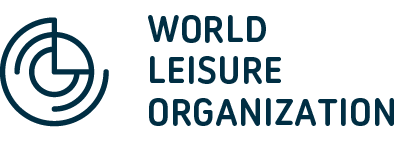Dr. John R Tower
Honorary Fellow
Victoria University
Melbourne, Australia
Leisure Management
Co-chairs


Dr. Jo An Zimmermann – Somoza
Associate Professor Texas State University
USA
Goals
- Maintain the LM SIG to share information about leisure management research, practices and publications.
- Establish a database of leisure management researchers and their areas of expertise.
- Document research about how leisure programs, facilities and services are contributing to communities’ quality of life.
- Document research about how leisure programs, facilities and services are achieving the UN”s SDGs.
Introduction
The Leisure Management Special Interest Group (LM SIG) is dedicated to the development of leisure management’s capacity to deliver excellent leisure experiences. We perform four main functions:
- Share information about global leisure management activities through our quarterly LM SIG eNews.
- Discuss leisure management issues through the LM SIG Webinar program.
- Encourage contributions to World Leisure Organisation’s activities and the World Leisure Congress.
- Encourage contributions to leisure management scholarship and sharing of best practice activities that contribute to excellent leisure experiences.
This website provides the LM SIG Rationale, the LM SIG’s planned and past activities, and links to the LM SIG Webinars and LM SIG eNews.
LM SIG eNews
Latest
The LM SIG shares an eNews several times a year. The eNews provides up to date information from WLO, news from LM SIG members, insights about current leisure management publications and the latest LM SIG activities. One of the strengths of the LM SIG eNews is members’ opportunity to share information about their leisure management activities among the LM SIG members, who are from over 40 countries around the world. Contributions from LM SIG members are always welcome.
Leisure Management Webinar Series
The LM SIG provides free webinars to address a range of leisure management topics that are of interest to our members. The webinars are designed to be a conversation among the guests and the webinar moderator about a particular issue. YouTube videos are available for each of the webinars. We are pleased to report that the Leisure Management Webinar Series has had over 1000 views and many videos are being viewed well after the webinar was presented. Sesc in Brazil has provided some translations of the videos, so you can hear the conversation in English, Spanish or Portuguese. Some of the webinars have also provided background documents to provide more relevant information about the topic.
We would appreciate your feedback if you participated in or viewed the LM SIG webinar videos. Have you shared the video with your staff / colleagues or used them in your teaching? We can monitor how many views the videos have, but we would like to know if the LM SIG Webinar program is having any meaningful impact. Please share any comments and suggestions about the LM SIG Webinar Series with us.
Other webinars
Access the extra resource below:
Resource 1 – Resource 2
Resource 3 – Resource 4
Rationale for the Leisure Management Special Interest Group (LM SIG)
The rationale for the LM SIG will be more meaningful if an explanation of leisure management is provided. Leisure management is the means by which organisations manipulate their resources to deliver leisure programs, facilities and services to stakeholders and the general community (Veal, 2003). The programs, facilities and services fall within the range of leisure, recreation, sport, tourism and events industry (Tower & Zimmermann, 2016) within the mixed economy of leisure provided by government, non-profit, commercial organisations and households (Veal, Darcy & Lynch, 2013). A particular characteristic of the mixed economy of leisure is the capacity for government, non-profit and commercial organisations to collaborate in program, facility and service delivery.
See more...
Leisure management has evolved over the decades to steadily increase the range of management responsibilities and tasks required to deliver leisure programs, facilities and services. Leisure management books have covered the fundamental management responsibilities such as planning, delivery, management and control of services (Torkildsen, 1983). More recent publications include the fundamentals but also address quality and performance management, (Taylor, 2011), community planning, accountability, partnerships, inclusion of diversity in the community and workplace (Edginton, Hudson, Lankford & Larsen, 2015), competency-based management, personnel practices, project management and allocation of resources (Hurd, Barcelona & Zimmermann, 2022). Leisure management was recently explained as a focus on the ‘what’ and the ‘who’. The ‘what’ relates to the leisure organisation’s understanding of the key leisure concepts, how organisations function and manipulate their resources to deliver programs, facilities and services. The ‘who’ is about the understanding of leisure service consumers and key stakeholders (Zimmermann & Tower, 2017).
Leisure management is more than working to achieve effective and efficient programs, facilities and services. Often leisure projects are designed to address issues of inequality, access and to help make the world a better place based on leisure’s contribution to a community’s quality of life. It is this focus on leisure impacts that provides a context for the LM SIG. There is a need to clearly articulate and document the ‘why’ of leisure services.
A Victorian government report identified the need for leisure centres and many other community services to justify their ongoing investment and to better document the outcomes they have achieved. Monitoring and measuring leisure services facilities and programs often focuses on outputs such as participant numbers, member retention, skill development, etc. (Victorian Auditor General Office, 2016). However, there is limited reporting of the outcomes achieved by leisure programs, facilities and services to determine the wellbeing, social and health outcomes that leisure services often have as part of their plans. (Marriott, Tower & McDonald, 2021).
The rationale for the LM SIG is the need to better coordinate and collaborate regarding measurement of the outcomes that leisure management initiatives are achieving. In a general sense it would be useful to document the achievements that are contributing to local communities’ quality of life. At a more specific level, there is value to focus on the UN’s Sustainable Development Goals (SDG) to document how leisure programs, facilities and services are working to achieve the SDGs.
The LM SIG will complement the WLO vision by documenting how leisure programs, facilities and services are enhancing the human condition and contributing to communities’ quality of life. Furthermore, the LM SIG will complement WLO’s focus on the UN SDGs by documenting successful leisure achievements and sharing the success stories via WLO and the wider leisure communities’ information sharing systems.
References
Edginton, C. R., Hudson, S., Lankford, S. & Larsen, D. (2015). Managing Recreation, Parks and Leisure Services: An Introduction – 4th Ed. Urbana, IL: Sagamore.
Hurd, A.R., Barcelona, R.J. & Zimmermann, J.M. (2022). Leisure Services Management, 3rd Ed. Champaign, IL: Human Kinetics.
Marriott, K., Tower, J. & McDonald, K. (2021) Community Leisure and Recreation Planning, London: Routledge.
Taylor, P. (Ed.) (2011). Torkildsen’s Sport and Leisure Management – 6th Ed. Milton Park: Routledge.
Torkildsen, G. (1983). Leisure and Recreation Management. London: E & F. N. Spon.
Tower, J. & Zimmermann, J.M. (2016). Setting the scene for the WLJ special edition on leisure management. World Leisure Journal. 58(1), 3-11.
Veal, A. J. (2003). Leisure Management in J.M. Jenkins and J. J. Pigram (Eds.) Encyclopedia of Leisure and Outdoor Recreation. London: Routledge.
Veal, A.J., Darcy, S. & Lynch, R. (2013). Australian Leisure – 4th Ed. Frenchs Forest, NSW Australia: Pearson.
Victorian Auditor General Office. (2016). Local Government Service Delivery: Recreational Facilities. Melbourne: Victorian Government.
Zimmermann, J. M. & Tower, J. (2017). Leisure management: All about the “what” and the “who”. World Leisure Journal, 59 (1), 2-5.
The LM SIG intends to continue with a range of activities in 2023 and 2024:
- We will continue the preparation and distribution of the LM SIG eNews during 2023 / 2024.
- We will also continue to offer Leisure Management Webinars in 2023 / 2024. The LM SIG is collaborating with other WL SIGs to deliver joint webinars, e.g., LM & Leisure and Ageing SIG, in the future.
- We will conduct a review of the LM SIG’s activities at the 2023 WL Congress. This review will help guide our activities over the coming years.
- We plan to participate in the 2023 WL Congress. There are a number of papers to be presented in the Leisure Management stream; and a session is planned to address issues about how leisure management can address diversity, equity and inclusion (DEI) issues.
- We are developing several options to prepare a leisure management bibliography.
- The LM SIG Co-Chairs edited a Leisure Management special edition of the World Leisure Journal in 2017. We are exploring opportunities to update some of the issues raised in that special edition with the intent to produce another special edition in the future.
- Established an LM theme session as part of the 2019 ANZALS Conference, and had ten LM presentations at that conference.
- Conducted a survey of LM SIG members in 2021 to review past activities and gain insights about LM SIG members’ expectations.
- Had leisure management presentations at the 2021 World Leisure Congress.
- Produced regular LM SIG eNews since 2021 to share leisure management information with our members (see links to past eNews issues below)
- Initiated the Leisure Management Webinar program in 2021 and continue to deliver several webinars each year (see links to videos of the LM SIG Webinar Series). Webinars included contributions to the World Leisure Day Programs in 2022 and 2023.
- Held a LM SIG member meeting in 2022 to help guide the LM SIG’s activities in 2023.



